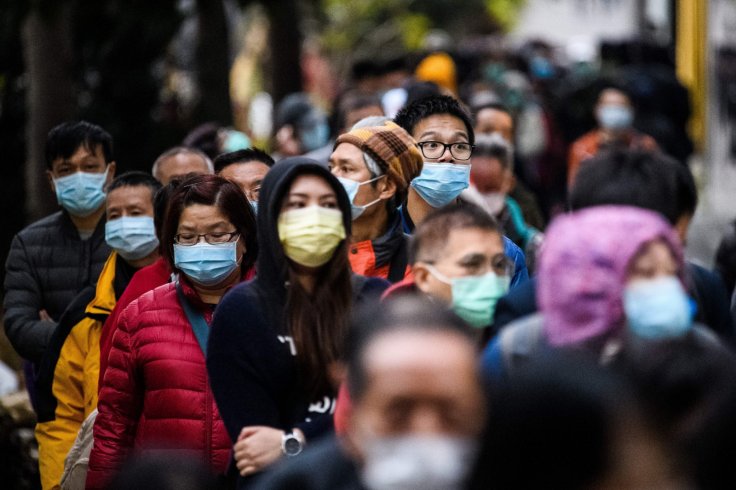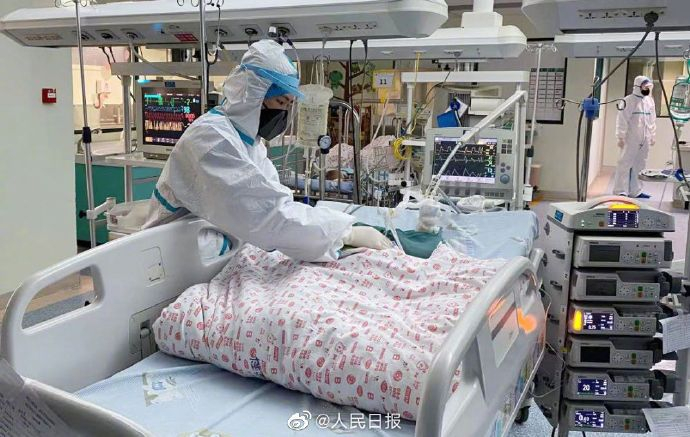The Chinese and American scientists found an answer to their quarries on immunity against the novel Coronavirus. The final outcome of their analysis came after they looked into a study on whether hospital workers in Wuhan who were directly exposed to infected patients at the early stage of the outbreak had developed antibodies. Their findings suggested that there may be no immunity against the COVID-19.
The scientists said that at least a quarter of over 23,000 samples tested could have been infected with the virus at some stage but only four percent were found to have developed antibodies as of April. The researchers said in a non-peer-reviewed paper posted on preprint website medRxiv.org on Tuesday that said, "People are unlikely to produce long-lasting protective antibodies against this virus."
Earlier scientists assumed that infected Coronavirus patients will be able to produce antibodies that will protect them from reinfection. Based on this many efforts against the pandemic were introduced which include providing "immune certificates," development of more than 100 potential vaccines, and encouraging recovered patients to give blood for experimental drugs and therapies. But the new Wuhan research revealed that all the infected people are not producing antibodies or long-lasting ones.
Antibodies are the molecules that are generated by the human body's immune system to bind with the virus spike protein and stop it from infecting cells. Some of them, like immunoglobulin G or IgG, can remain in the system for a long time -- which was found in 2003 SARS patients almost 12 years after they were infected.

Coronavirus research in Wuhan
In the recent research, led by Wang Xinhuan from Wuhan University's Zhongnan Hospital and scientists from the University of Texas in Galveston, scientists looked at the samples collected from health care workers and general hospital staff in the Chinese city where the virus first emerged in December. After analysis, they found that around four percent of the healthcare workers and 4.6 percent of hospital staff had the IgG antibody.
Some of these infected healthcare workers and hospital employees had mild symptoms or no symptoms when they were infected and some of them did not even know that they have contracted SARS-CoV-2. Until January, there was no confirmation on the human to human transmission, and many doctors and nurses were not using extra protective gear before treating patients. Wang and his team said that they got infected with novel Coronavirus and fought off the virus with their own immune systems.

Earlier, scientists said that the Coronavirus patients with more obvious symptoms more likely to produce antibodies. A previous study showed that all confirmed COVID-19 cases studied by scientists had developed the IgG antibody two weeks after the disease onset.
Wang's team suggested that over 10 percent of the people involved in their research possibly have lost antibody protection within a month or so. They said, "Our findings have important implications for herd immunity, antibody-based therapeutics, public health strategies, and vaccine development."
Based on the research conducted by Wang's team, the researchers claimed that antibody tests may not be enough to reveal if someone is a Coronavirus patient. The team also noted that the presence of antibodies like IgG may not necessarily provide immunity later. So, in that case, as per Wang, the idea of issuing immune certificate after recovery "is invalid."
Tsinghua University Research
Another study, conducted by researchers at Tsinghua University in Beijing revealed that the more antibodies produced by the patients of novel Coronavirus patients, the worse the outcome – the patient with the strongest antibody response in the study had died.
They described it as a phenomenon of antibody-dependent enhancement. In such cases, the viruses hitch a ride on an antibody to infect cells they could not enter. As per Wang, it was "a big concern to be closely monitored".
Wu Yingsong, director of antibody engineering research at the Southern Medical University in Guangzhou said the Wuhan study needs to be treated with caution as "there are still a lot of fundamental things about the coronavirus we don't understand."








